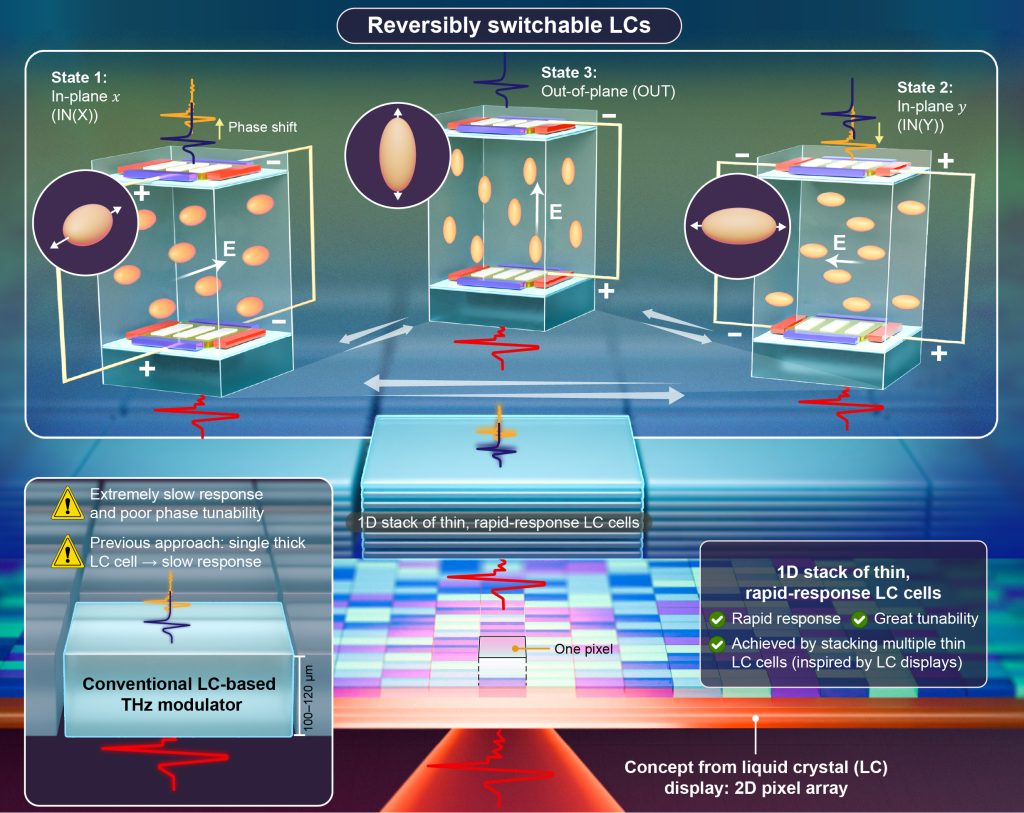Optimizing the mechanism for modulating THz phases by reversibly switching layers of liquid crystals between two in-plane and one out-of-plane states
We previously proposed electrode structures to reversibly switch liquid crystals (LCs), which respond reasonably rapidly, between three orthogonal orientational states. Here, to leverage the excellent inherent tunability of LCs for use in terahertz (THz) phase modulators, we reframe the working principles of these electrode structures for driving a thick LC layer, and we investigate how low-voltage operation affects the switching behavior. Phase changes of 100° are demonstrated, but in principle, the phase range can be broadened by increasing the retardation of the LC medium. According to the operating principles, a pair of electrodes with identical layouts must precisely mirror each other on the inner surfaces of the top and bottom substrates separated by a gap; however, misaligning the two substrates scarcely affects the switching characteristics, providing wiggle room for sufficiently accurate alignment. Statically, even a low voltage enables switching one state to another while reaching the maximum phase shift. By contrast, the dynamic responses to low voltages degrade and are extremely slow. Further, although high-voltage operation provides reasonable response times between the three states, it is incompatible with continuous tunability. This problem prompted us to consider a stack of thin, rapid-response LC layers and to simultaneously or independently switch each layer to create a continuous or discrete range of possible phase shifts, respectively. In other words, replacing a two-dimensional pixel array, like a display, with a one-dimensional stack of LC layers would enable tunability compatible with reasonably fast responses, suggesting a technical advance toward realizing LC-based THz modulators.
The Journal of Chemical Physics article




